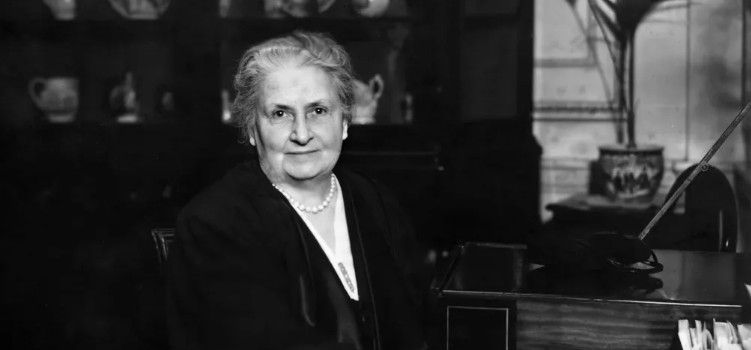
Maria Montessori in the Digital Age: Autonomy in Modern Education
"The aim of education should be to develop the individual's capacity for action." – Maria Montessori
This famous quote by Maria Montessori, spoken in the early 20th century, resonates even more strongly in the digital age. The Italian educator, who revolutionized pedagogy with her child-centered autonomy method, seemed to anticipate the challenges and opportunities that the internet would bring to learning.
Autonomy and Access to Information
When Montessori developed her method, she observed that children possessed a natural ability to learn when they had the freedom to explore and discover on their own. Today, with virtually unlimited access to information through the internet, this principle takes on a new dimension. Modern students have at their disposal an unprecedented amount of educational resources, ranging from video lessons to complete online courses.
Prepared Environment in the Digital Universe
Montessori's concept of the "prepared environment" — a carefully organized space to promote independent learning — can be seamlessly translated into the digital universe. Just as Montessori organized her classroom with specific and accessible educational materials, today we can think of well-structured educational platforms that allow students to navigate their own learning paths.
The Role of the Modern Educator
In 1909, when she published "The Montessori Method," the educator emphasized that the teacher's role should be more of a guide than a transmitter of knowledge. This vision aligns perfectly with the role of the modern educator, who needs to assist students in developing research skills, critical analysis, and self-directed learning in the online environment.
"Never help a child with a task in which they feel they can succeed," Montessori said. This principle is particularly relevant when we think about the development of digital autonomy. Digital natives need to learn to navigate, select, and process information on their own, developing resilience and critical thinking.
Relevance During the Pandemic
During the COVID-19 pandemic, when millions of students migrated to remote learning, Montessori principles proved more relevant than ever. The need for self-discipline, time and space organization, and responsibility for one's own learning — all central elements of the Montessori method — became essential skills for academic success in a virtual environment.
Sensitive Periods and Personalized Teaching
It is interesting to note how Montessori's concept of "sensitive periods" — specific moments when a child is more receptive to certain learnings — can be applied to the digital world. With modern analytical tools, it is possible to identify patterns of interest and readiness for different types of content, allowing for personalized teaching that Montessori could only dream of.
Legacy and Education in the Internet Age
The educator always maintained that the true test of the Montessori method was not in immediate academic results but in the development of independent, confident, and eternally curious human beings. In the age of the internet, this vision translates into the formation of individuals capable of navigating the ocean of information with discernment, keeping the desire to learn alive.
When we observe Maria Montessori's legacy through the lens of the digital age, we realize that her principles not only stood the test of time but also gained new relevance. Her vision of education centered on the learner's autonomy, respect for individual rhythms, and the holistic development of the human being provides a valuable framework for rethinking education in the internet era.
The educational revolution that Montessori began over a century ago continues to inspire educators and educational technology developers. Her method reminds us that, regardless of the available tools, the true aim of education is to awaken each individual's unique potential so that they can direct their own learning throughout life.
- education
- montessori
- digital_age
- learning
- autonomy
- metodologies
- educacao_online
- modern_education